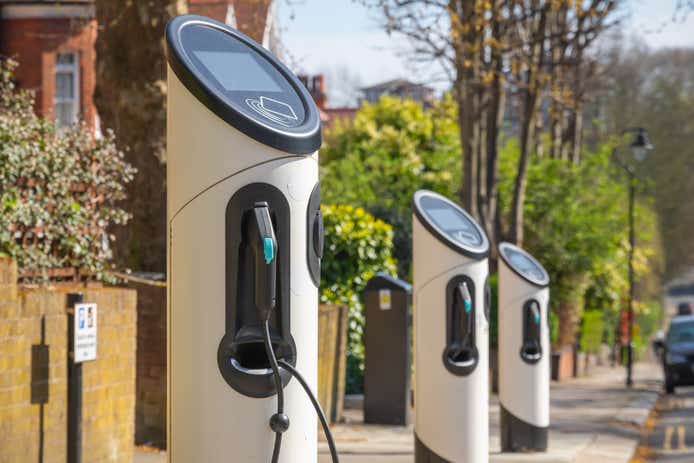What is low carbon heating?
Home heating throughout the UK is usually achieved through the use of fossil-fuelled gas and oil boilers - low carbon heating does not rely on fossil fuels and instead uses renewable technology.
These technologies include the likes of air and ground source heat pumps, solar water heating, biomass, and more. By replacing existing boilers with systems that utilise these natural, renewable heat sources, we can reduce the carbon emissions produced by each household.
How much does heating contribute to UK carbon emissions?
Home heating comprises about 14% of the UK’s overall carbon emissions, so is certainly something that needs to be overhauled, along with areas like our reliance on petrol and diesel cars, if the UK is to meet its target of achieving net zero by 2050.
How do home heating systems add to our carbon footprint?
Many home heating systems and boilers are still reliant on gas and oil, which are two of the fuels that produce the most carbon emissions when we source them. In order to bring those emissions down and eradicate them completely, therefore, we need to begin to implement green heating systems and solutions across the country.
What are the best low-carbon heating solutions?
There are various low-carbon heating solutions available for households to adopt in place of an oil or gas boiler - some may be more suitable than others, but the options are increasing as more investment is put into researching and developing new measures.
Ground source heat pumps
A ground source heat pump takes heat from the ground by pumping water into the ground, using the natural heat found in the ground to increase the temperature of the water and pumping it back out again to heat your home via compressed fluid that’s then circulated throughout the heating system.
The main consideration as far as ground source heat pumps are concerned (apart from price) is whether you have the space required to install one. You’ll need a garden or some private ground-level outdoor space at a minimum, and it’s worth seeing what your local authority requires in terms of planning permission before you order one, too.
Air source heat pumps
Working in a similar way to a ground source heat pump (with the obvious fundamental difference), an air source heat pump takes heat from the air and absorbs it into a fluid within the unit. The fluid is then compressed to raise its temperature - meaning it doesn’t matter if it’s cold outside - before being circulated throughout radiators or other heaters.
It’s worth noting that they’re generally more affordable than ground pumps, costing around £8,000 to £10,000 less.
Solar water heating
Solar water heating uses the sun’s energy (collected via solar panels) to heat water in a hot water cylinder that can then be used as hot water or as heating via radiators. Those with solar water heating will therefore get hot water consistently throughout the year, though in the winter months when there’s less sunlight, an immersion heater might be required to top things up.
You’ll need to think about whether your roof is likely to get enough sunlight to make investing in a solar water heating system financially worthwhile, as well as being able to meet that initial cost.
Can you get government funding for a more eco-friendly heating system?
With increased focus on the climate crisis, the government has put more emphasis on a range of measures that include offering grants for various home energy efficiency improvements. The main one is the Boiler Upgrade Scheme, which replaces the Renewable Heat Incentive. The Boiler Upgrade Scheme offers grants to those who install systems like air or ground source heat pumps, which could be well worth exploring as we move towards a carbon-free future.
Professor Sam Fankhauser, Research Director at Oxford Net Zero, comments:
"Heating costs have reached eye-watering levels.
"Buildings are also one of the biggest sources of carbon emissions.
"The two problems have a common solution: energy efficiency. Not all energy efficiency solutions are straightforward, but many are, and they can start to save money and carbon immediately."
FAQs
Is underfloor heating a low carbon measure?
Underfloor heating is often thought of as a luxurious addition to a home, and in many cases it can be a low carbon heating measure.
If it’s a “dry” system using electrical wires, you’ll have to use electricity for it to work, while a “wet” system raises the temperature of water flowing through pipes under the floor to heat it.
However, it all depends on the source of the energy used to heat the wires and the water - especially with a water-based system - and you’ll need to take into account the increased time it takes to heat a room using underfloor heating rather than radiators, too.
Is the Green Homes Grant still available?
The Green Homes Grant, which was designed to help households make savings on the installation of energy-efficient measures such as insulation, is no longer available - it was beset with issues around the application and installation processes, so the decision was made to cancel it in March 2021, around six months after it opened.
What will replace gas boilers?
There’s an emphasis on replacing inefficient gas boilers with low-emission systems like air and ground source heat pumps and solar water heating. To this end, the Boiler Upgrade Scheme will offer homeowners £5,000 towards the installation of an air source heat pump and £6,000 towards the installation of a ground source heat pump. Those in rural areas could receive £5,000 towards the cost of a biomass boiler.




